I would imagine that yesterday’s article in the Sunday Independent about Mindfulness entitled: ‘The Revolution in your head’ which highlighted Emily Hourican’s worry about her diminishing concentration span and her ability to slow down and focus her mind resonated with a lot of people. Perfectly normal people come to my classes. Nowadays it seems ‘perfectly normal’ to be stressed out, exhausted, anxious depressed, sleepless much of the time.
Just reading her description of how many people now live – switching frantically between talking, working, cooking, walking, resting, painting the bathroom and ‘just quickly checking ‘ emails, texts, twitter and facebook accounts wore me out!
Not that I have not lived that way. I have. But, I have to say my experience of meditation and Mindfulness was and is life changing and participants of my courses affirm a similar view time and again. In fact, I think the reason for the Mindfulness Revolution is because as evidence shows Mindfulness actually ‘works’ for a lot of people in a variety of contexts.
Some of the reasons Mindfulness works for participants
- Notice how often they are ‘lost’ in thought, distraction – not present and aware to this moment and what they are doing now
- See the impact of not being ‘present’ and how their perception is distorted “I don’t see things as they are but as I am’
- Start practicing purposefully focusing attention or ‘meditation’ and discover that like going to the gym, the exercise of focusing attention grows muscle and the ability to be calm and still.
- Learn to break old patterns of ‘reactivity’ like: ‘fixing’ ‘rage’, ‘panic’…
- Begin to see choices / options “Between stimulus and response there is a space. In that space is our power to choose our response. In our response lies our growth and our freedom.” Viktor E. Frankl
- Stop running and sit with the “constant gnawing fear in between (distractions)”, (Sunday Independent) and discover that they are not just thoughts / feelings but there is something vaster / deeper quietly watching
- Come home to themselves – happy / appreciative of their body / life
- Cultivate calm / inner peace (qualities like ‘happiness’, joy, are already within and the practice of meditation puts people back in tune with this dimension of themselves)
And lots more…
In the words of participants
“discovered resources within me that I’d never imagined were there.”
“It feels so good not to run with the stories my mind is telling me.”
“Throughout the 8 weeks, I found that my mind shouted less and my body started to come to life and it is wonderful to be able to be in situations without panic, just acceptance.”
“I feel more grounded in my body and have gotten to know myself a little more intimately. I feel like I am taking more care of myself than ever before.”
“more are are of my feelings and my body now, less critical of myself, more accepting”
Does that mean that Mindfulness is a panacea for all ills or for everyone?
Of course not, nothing ever is but that should not undermine its value to countless people globally. I cannot agree that it does not require you to renounce things or reject things or make drastic changes. In my experience, it brings clarity, insight and huge transformation into anyone’s life who continues to practice.
Is there a danger that the corporate world may mis-use mindfulness?
Emily Hourican warns that Mindfulness may become ‘opium for people’ or a kind of placating method and the corporate world may only promote aspects of Mindfulness that support the system?
Absolutely! Nothing is beyond corruption so we must remain vigilant. Mindfulness comes from the East where the word for Mind and Heart is the same so in fact it translates badly. Though mindfulness is about ‘bare attention’, ‘discernment’, ‘clear seeing’, these are underpinned by good wholehearted intentions and positive mental attitudes that lead to a better world for all humankind.
… more on this next time…





